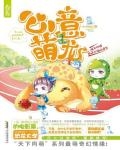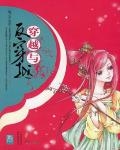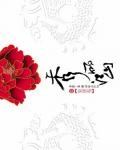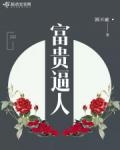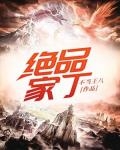Volume 1 Jiangdong Fengyun Chapter 58: Divine Artifact
Outside Qu'a City, in a test field surrounded by a military camp, Bai Tu held the plow with one hand while driving the ox in front of him to plow a crooked ditch in the field...
"What a magical tool! You and a stupid ox can actually 'barely' plow the field !" Lu Lingqi, still dressed as a guard, walked beside Bai Tu and whispered to him.
Bai Tu glanced at her, but ignored her to maintain his appearance - after all, Lu Lingqi's voice was so low that no one else could hear it.
The specially invited old farmers, cattle doctors and craftsmen who were witnessing this scene were all so excited that their eyes were filled with tears.
Originally Bai Tu felt that he was somewhat great, but when he thought about what Lu Lingqi said and looked at their expressions... he felt really awkward!
It is true that Bai Tu was not very good at plowing the fields. The reason why these people were so excited... was because Bai Tu, plus a "stupid ox", could actually plow the fields "effortlessly".
The so-called stupid cow refers to the water buffalo. During the Eastern Han Dynasty, water buffalo were rarely used for farming and most of them were so-called "vegetable cows".
The main reason is that water buffaloes are not as docile as yellow cattle, and their size is nearly half that of cattle. In the Eastern Han Dynasty, when nose rings were not widely used, it was difficult to use their animal power...
Therefore, during the Han Dynasty, only the unauthorized killing of oxen was prohibited - water buffaloes were not included.
The south was mostly populated by buffalo, which made farming difficult, which was one of the reasons why the south .
Ox-drawn plowing had already appeared in the Spring and Autumn Period. It was used in various places during the Han Dynasty and was even promoted by the government. However... even in the north, using oxen to plow the land required two oxen to pull one plow, and there were very few people who were so wealthy.
Now, Bai Tu has only made two things - the curved plow and the ox nose ring.
The curved plow appeared in the Tang Dynasty. It is more in line with mechanics than the current long straight plow. It is a more labor-saving and easy-to-rotate farming tool. It was still a "magic weapon" in use until the Ming and Qing Dynasties.
The information in the Baitu map contains detailed records of the eleven complete components of the curved plow. Although it was only theory on paper, with such great guidance, it was easy to obtain the finished product after repeated experiments and determine the manufacturing process of the specific components.
In comparison, the craftsmanship of making a cow nose ring is more complicated, because it is not just a matter of making a simple ring. One also has to consider how to wear it in order to achieve the greatest effect and cause the least harm to the cow. Otherwise, ordinary people will not take the risk of using a cow, let alone a buffalo!
Therefore, Bai Tu also found a special old cow doctor and a cow doctor - at this time, the person who treated horses was called a "veterinarian", and the person who treated cows was called a "cow doctor", with clear classification.
Now Bai Tu’s vision has finally been fulfilled: one ox, one plow and one person are all that’s needed to plow the land.
This is also the advantage of the curved plow. It only needs one ox to pull it. The farmer can hold the plow with one hand and drive the buffalo with the other hand holding the bamboo pole tied to the nose ring!
Of course, in some fields that meet special conditions, there is a more convenient method of plowing with cattle, such as two people and one cattle pulling a large plow. However, "single cattle + curved plow" is also considered a "complete" form of animal-powered farming.
There are many ways to improve farming efficiency, such as optimizing breeding, intensive farming, and building water conservancy projects...
But these can only be done slowly, and now Baitu is just a last-minute cram!
At the same time, Bai Tu also pointed out the policy of "military farming system", which is a system of using the army, or laborers, and landless refugees to cultivate government fields in order to obtain military supplies and tax grain.
Unlike technological processes, in order to light up a decree, one does not need to make actual items, but instead needs to submit a report to Shirohime.
Usually, this type of policy requires small-scale experiments and constant adjustments before a report that can actually be passed can be formed.
But for Bai Tu, the "military farming system" was not that difficult.
During the reign of Emperor Wen of Han, the earliest military farming system had already appeared, but it was limited to the border areas - it was a supplement to the policy of "moving people to the border".
During the Three Kingdoms period, the military farming system began to become popular after Cao Cao accepted Zao Zhi's suggestion. The largest military farming was the development of Huainan in the late Cao Wei period, when large tracts of uninhabited land in the dilapidated Huainan were designated as official fields, and then collective farming was carried out by combining military and civilian farming.
Bai Tu was naturally well aware of the disadvantages of the military farming system. First, military farming occupied manpower, and no matter how it was allocated, it would take up training time and reduce the elite level of the army, and the real elite soldiers would not participate in military farming. Second, and more serious, if the military farming system developed in depth, it would almost inevitably get out of control to the point of seizing the people's land, especially when Bai Tu was unable to suppress the aristocratic families.
By the Western Jin Dynasty, the military farming system had directly developed into the "land occupation system" that allowed the aristocratic families to legally enclose land.
However, for the advantages of the military farming system and the impending drought, Bai Tu felt that it was necessary to set up a military farm first.
The purpose of the military farming system has never been to harvest a lot of grain, but to enable the army to be self-sufficient, that is, to reduce transportation costs. Therefore, the military farming system during the Three Kingdoms period was all on the border.
For example, when Cao Wei planned to attack Wu, they cultivated land in Huainan. When Bashu wanted to advance into the Central Plains, they cultivated land in Wuzhangyuan.
The areas where Bai Tu implemented military farming were also concentrated along the Yangtze River. At first glance, it really looked like he was preparing to seize Huainan. Only Bai Tu himself knew that this was to make it easier to go to Huainan to rescue people.
As for Kuaiji County and Yuzhang County, which are far away from the Yangtze River, there is no need to set up military farms. Otherwise, the efficiency of military farms is lower than that of self-cultivation, and when you take into account the transportation costs... it's a waste of time!
In addition to food, the military farming system has two additional benefits. First, it is conducive to the harmony between the military and the people. From a human perspective, after soldiers get used to working, they will have more empathy for the people, which will prevent soldiers from harming the people and make it easier to cultivate a benevolent and righteous army. Second, it allows soldiers to start families and careers in the places where the military farming is done, which makes the soldiers feel more belonging. Even if they are defeated in the future, they will try their best to come back.
It seems that Ji Zao's soldiers don't have to consider these things, but... After Bai Tu wrote the report and pointed out the decree of the military farming system, he found that "military farming" itself has additional effects - after the implementation of military farming, military discipline will be improved, and the soldiers will return voluntarily after being defeated.
Of course, there is also a note: it will reduce training efficiency!
"Father-in-law, please stay in the army for a while in the next few months." Bai Tu said to the old farmers who were invited.
This was also agreed upon before.
"You are too polite, sir..." Several old farmers said they dared not.
"There is one more thing I would like to discuss with you. In the past, when there were droughts, floods, locust plagues, and poor harvests, what did your households eat to fill their stomachs?" Bai Tu asked.
"Usually I go to the mountains..."
"Well, of course it's because local governments provided timely disaster relief, and the county magistrate was very kind..." the oldest man said first.
"To be honest...it won't affect your health!" Bai Tu's eyebrows twitched.
"Ahem, that's usually bran, chaff... and a few kinds of wild vegetables , grass roots, and sometimes tree bark." The old man said this when he saw that Bai Tu was not trying to trick him but was really asking for advice.
"Well, I'll trouble you all during this period. I'll invite a few more doctors to come and work out a recipe for disaster relief food. In short, we need to save food as much as possible, but at the same time, we should not have too much impact !"
The elders looked at each other, but all agreed.

